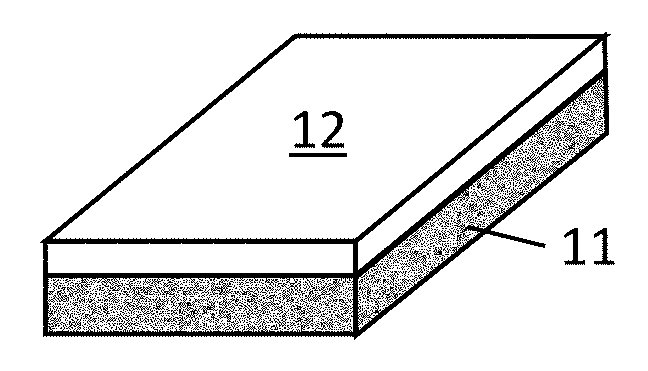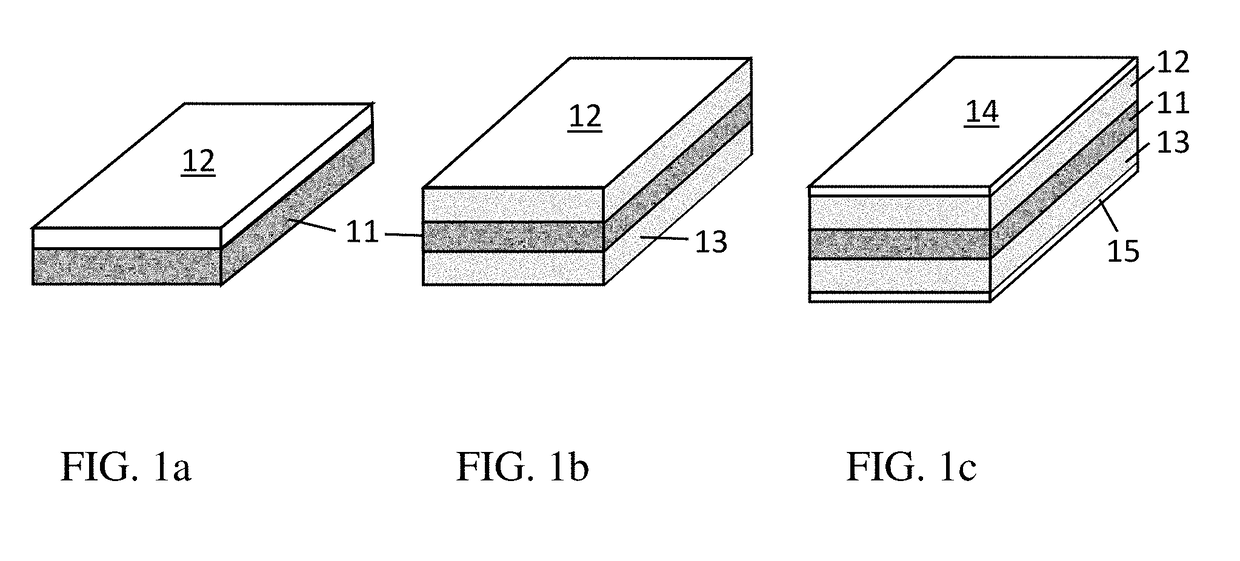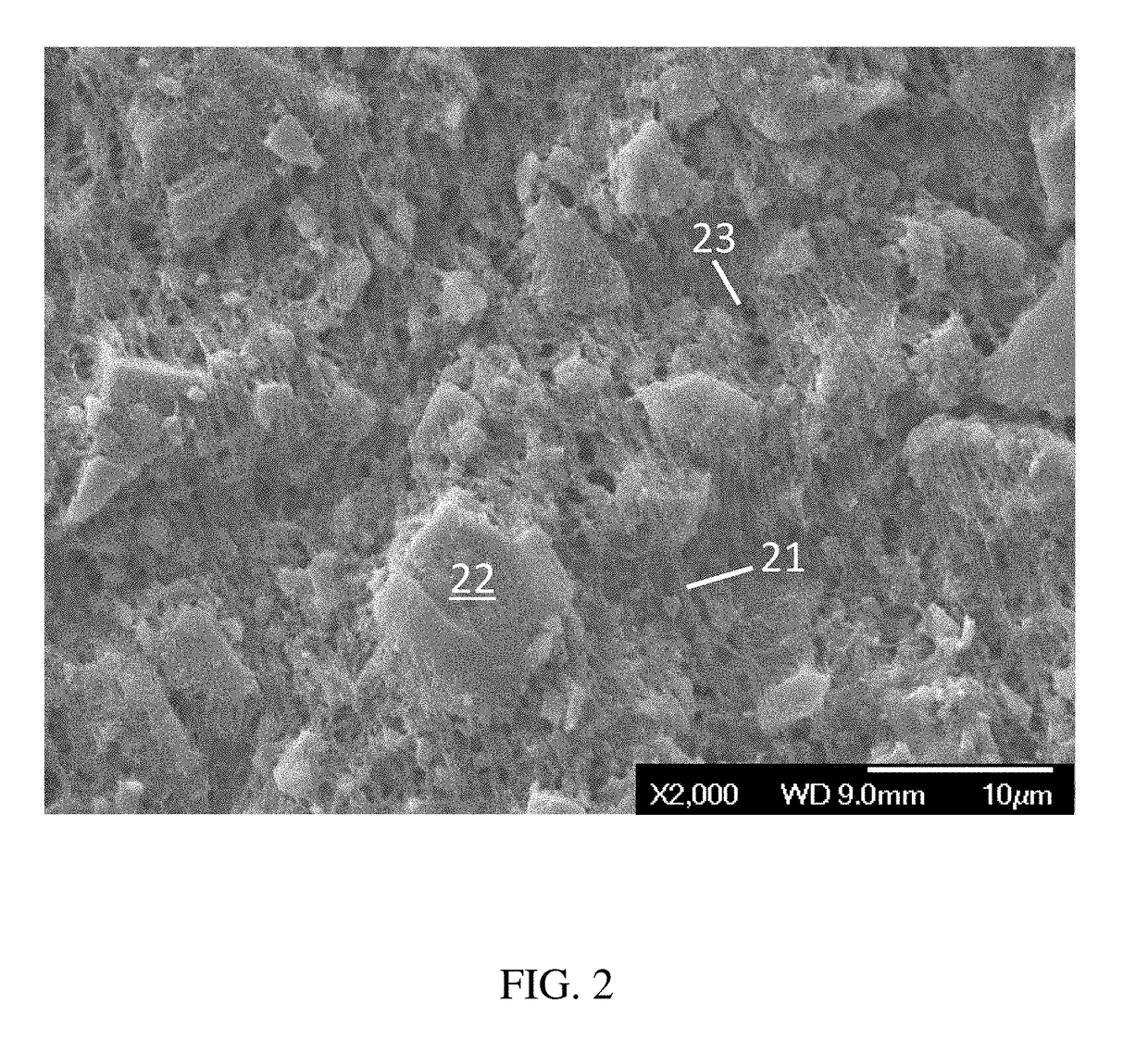Multilayer polymeric membrane and process
a polymer membrane and polymer technology, applied in the field of multi-layer sorbent polymeric membranes, can solve the problems of reducing the performance of particulate inclusions, affecting the productivity and performance of filled membranes, and often suffering from poor productivity and performance, and achieves excellent wettability and superior adhesion
- Summary
- Abstract
- Description
- Claims
- Application Information
AI Technical Summary
Benefits of technology
Problems solved by technology
Method used
Image
Examples
examples
[0102]Membranes of the present invention are further described with reference to the following non-limiting examples. The properties of the examples are measured according to the following test methods.
Test Method
[0103]Particle Properties: Mastersizer 3000 of Malvern Instrument was used to measure an average particle size and a particle size distribution of the sorbent materials. Before and after processing, the adsorbent materials were characterized with a nitrogen adsorption porosimetry (Micromeritics ASAP 2020) (ASTM D6556) for a pore volume (φS), a pore size distribution (PSD) and a Brunauer-Emmett-Teller (BET) surface area (ABET). The gas volume adsorbed at various vapor pressures was recorded for the adsorption and desorption steps. Recovery (RSBT, %) of the initial porosity for the materials was then calculated:
RSBT=MeasuredPorosityofParticlesintheDriedMembraneInitialPorosityofParticles×100
[0104]For the absorbent materials, the RBST was calculated in a similar way by weighing...
examples c1-c3 and 1-10
[0118]TABLE 3 shows the layer structure, composition, and process conditions of Comparative Examples C1-C3 and Examples (EX) 1-10. Except for a soda lime Ca(OH)2 of C2, the sorbent materials used were carbons and zeolites. C1-C3 were prepared according to the conventional methods, a monolayer membrane with a very high and a very low polymer content. A rib pattern was embossed on C2 film. C1 film was stable, splitting infrequently during processing. However, C2 and C3 films were too brittle for a continuous operation, along with fractions of the particle inclusions falling out of the matrices. In contrast, EXs 1-10 were a multilayer film, all asymmetric in composition and / or structure. The Example films contained at least one layer containing a low polymer content ≦2.5 wt. %, similar to C2 and C3 films. Surprisingly, however, all the Example films were stable with little or no instability and splits.
[0119]EX 1 had a skin layer identical in composition to C3, i.e., a highly sorbent sk...
examples 11-22
[0123]TABLE 5 shows the layer structure, composition, and process conditions of EXs 11-22. In contrast to C2 film, the Example films were all stable with little or no processing issues. EXs 11-14 were a monolayer film, having a bio-polymer matrix except for PA66. The cast sheets were quenched rapidly by setting the roll at 10° C. The monolayer films also differed both in composition and process from C2 and the prior arts. The Example films were variously extracted by combining the novel inventive methods, i.e., ultrasound, supercritical fluids, incompatibilization, low surface tension extractants, high power and green solvents, etc. EXs 11-17 employed sorbents incompatible with diluents. EXs 15-17 were a two-layer film with a rib pattern. EX 15 incorporated an absorbent in the core and an adsorbent in the skin. EX 17 was similar in composition to EX 16, but the film was biaxially oriented without a rib pattern. EXs 18-22 contained mesoporous adsorbents, regenerable and superior in C...
PUM
| Property | Measurement | Unit |
|---|---|---|
| wt. % | aaaaa | aaaaa |
| porosity | aaaaa | aaaaa |
| porosity | aaaaa | aaaaa |
Abstract
Description
Claims
Application Information
 Login to View More
Login to View More - R&D
- Intellectual Property
- Life Sciences
- Materials
- Tech Scout
- Unparalleled Data Quality
- Higher Quality Content
- 60% Fewer Hallucinations
Browse by: Latest US Patents, China's latest patents, Technical Efficacy Thesaurus, Application Domain, Technology Topic, Popular Technical Reports.
© 2025 PatSnap. All rights reserved.Legal|Privacy policy|Modern Slavery Act Transparency Statement|Sitemap|About US| Contact US: help@patsnap.com



